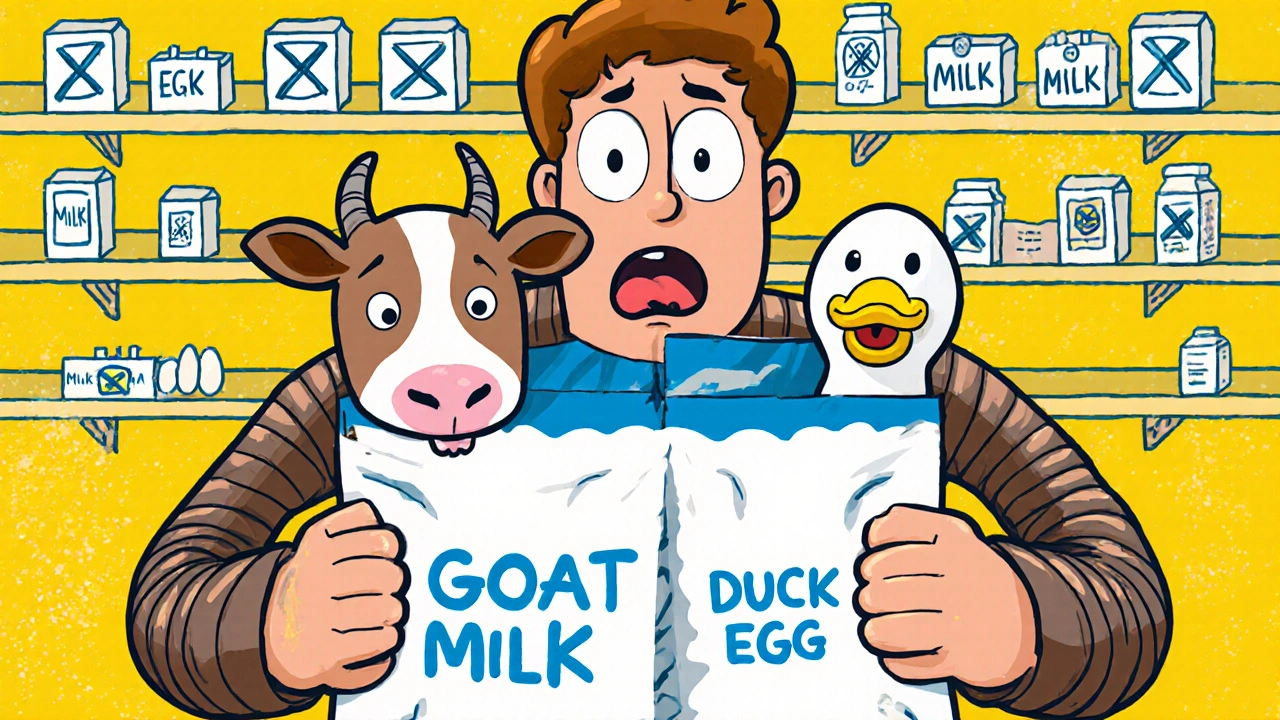Food Allergens: What They Are, How They Affect You, and What to Watch For
When your body mistakes a harmless food protein for a threat, it launches an immune response—that’s a food allergen, a substance in food that triggers an abnormal immune reaction in sensitive individuals. Also known as allergenic food proteins, these aren’t just about upset stomachs—they can shut down breathing, drop blood pressure, and kill. Unlike food intolerance, which is about digestion, a true food allergy involves your immune system going into overdrive. And it doesn’t take much: a single crumb of peanut, a splash of milk, or even airborne particles from cooking shellfish can set off a reaction in someone with a severe allergy.
Eight foods cause over 90% of serious allergic reactions: peanuts, a legume that triggers life-threatening anaphylaxis in many, tree nuts, including almonds, walnuts, and cashews—often confused with peanuts but biologically different, milk, especially dangerous for children, though many outgrow it, eggs, the protein in egg whites is the usual culprit, fish, like salmon or tuna, where reactions often last a lifetime, shellfish, including shrimp, crab, and lobster—among the most common adult-onset allergies, soy, hidden in sauces, snacks, and even some medications, and wheat, not to be confused with gluten sensitivity, which is a different issue entirely. These aren’t just ingredients—they’re potential triggers that can hide in sauces, seasonings, fried foods, and even cosmetics.
What makes food allergens so dangerous isn’t just the reaction itself—it’s how easily they spread. Cross-contamination happens when a tool, surface, or hand that touched an allergen transfers it to something safe. A knife used to spread peanut butter, then wiped off and used on a sandwich, can be enough. Restaurants, schools, and even home kitchens become minefields without strict protocols. And while some people react within minutes, others take hours, making it harder to connect the dots between what they ate and how they felt.
You’ll find posts here that dig into how drug reactions can mimic food allergies, how symptom diaries help track hidden triggers, and why some herbal supplements like Dong Quai can dangerously interact with medications already taken for allergy-related conditions. These aren’t just random articles—they’re pieces of a bigger puzzle. If you’ve ever been told to avoid a food but didn’t know why, or if you’ve watched someone struggle with an unseen reaction, this collection gives you the facts you need to act—before it’s too late.

Food Labels and Allergies: Hidden Allergens and Safety in 2025
Haig Sandavol Nov 20 13In 2025, FDA rules changed how food labels reveal allergens. Hidden allergens like goat milk, sesame, and mollusks are now clearly labeled-or dangerously left out. Know what to look for to stay safe.
More Detail